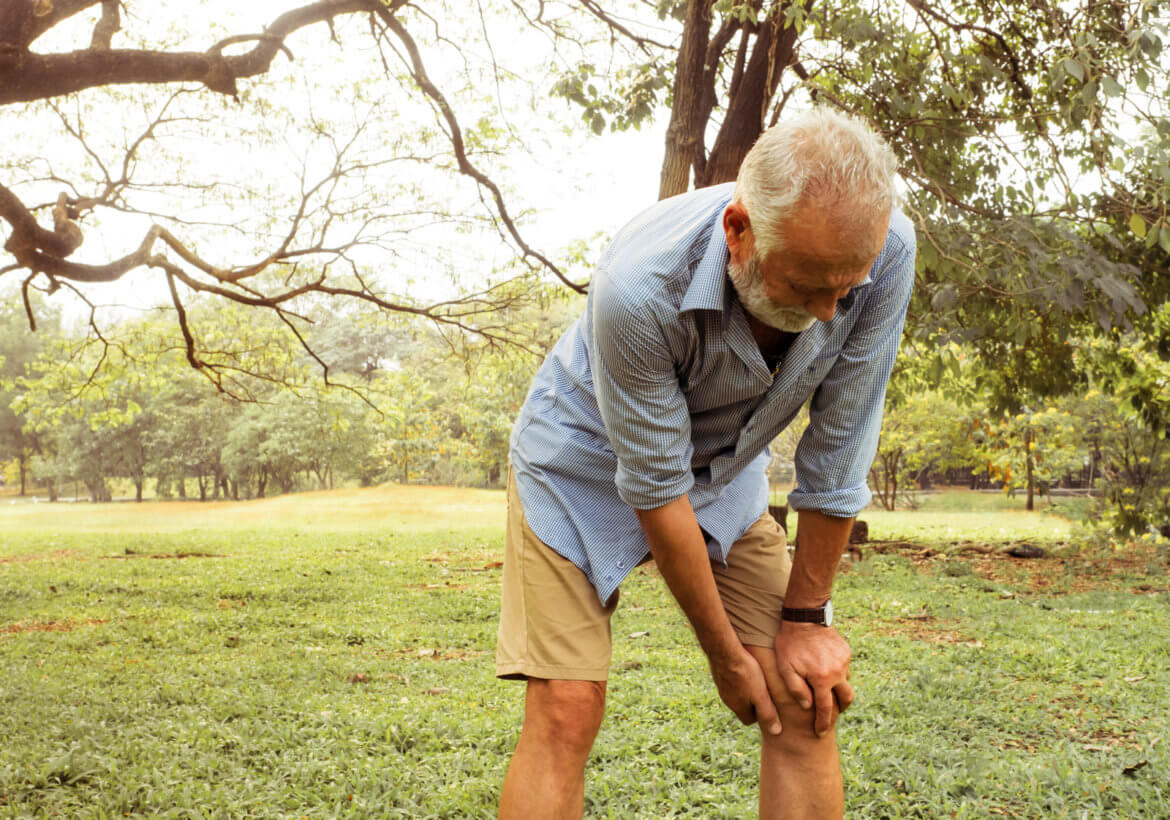When you have joint pain, the greatest burden is not just the physical discomfort, but the practical limitations it creates as tasks become difficult. In some cases, it might mean that you have to give up activities you love altogether, seriously impacting both your functionality and your overall wellbeing. But don’t assume that these aches and limitations are inevitable or untreatable.
Maybe you are already beginning to struggle with joint pain. Or maybe you’re anticipating the possibility and looking for a way to prevent it. Either way, the sooner you speak to a practitioner about causes and challenges of joint pain, the more likely you’ll be able to lower your risk factors and find relief. For men, one of the most important questions to ask is, “Can low testosterone cause joint pain?”
Why Can Low Testosterone Cause Joint Pain?
Androgen hormones, including testosterone, have a protective effect on cartilage in the body. For decades, researchers have observed that androgens help to prevent inflammation and damage to the cartilage. Significantly, evidence also suggests that testosterone replacement therapy may counteract joint pain and damage in men with testosterone deficiency. This deficiency can be the result of a surgery, a chronic illness, an injury, or the normal process of aging and is associated with a host of distressing symptoms. However, many men—even those already diagnosed with low testosterone—don’t realize that the condition can seriously affect joint health.
When testosterone levels are low, you may be at greater risk of inflammation and pain in the joints. This can lead to stiffness, inflexibility, difficulty with mobility, and discouragement from regular physical activity. With less regular movement, joint stiffness and pain are very likely to get even worse. Often, lack of activity leads to weight gain, putting even more strain on the joints. And the impact may be severe.
According to a 2014 study, there is a clear association between testosterone levels and the risk of rheumatoid arthritis in men. Based on data from a population-based health survey, researchers found that men with lower levels of testosterone were more likely to develop rheumatoid arthritis in the years that followed—particularly the version of rheumatoid arthritis not associated with autoimmune factors. In other words, low testosterone levels are predictive of rheumatoid arthritis. It also means that testing hormone levels and correcting deficiencies may offer a way to proactively prevent the development of arthritis.
Research that addresses treatment shines an even brighter light on the connection between testosterone and joint health. In one 2015 study, men with hypogonadism—or androgen hormone deficiency—who were treated with testosterone undecanoate reported decreased joint and muscle pain during the course of treatment. A year earlier, a study published in the Journal of Sexual Medicine also found that testosterone replacement therapy improved joint pain as well as cholesterol, blood pressure, body weight, waist circumference, and BMI in men with late-onset hypogonadism. Significantly, the study’s authors were able to observe overall quality of life enhancements related to these specific improvements.
How to Increase Testosterone
Testosterone is not a universal puzzle piece that is meant to remain the same throughout your life. It’s natural for testosterone levels to fluctuate in order to facilitate different phases of development and it is normal for testosterone levels to wane over time—in fact, this primary sex hormone begins declining at a rate of about 1% per year from the age of 30, which does not necessarily bring on undesirable effects. However, if testosterone levels drop below the normal threshold—as the result of aging, a specific event, or a congenital condition—it is important to seek treatment, both to address immediate symptoms and to protect long-term health.
Testosterone replacement therapy is the best way to restore your testosterone levels and support your body’s needs. Hormone tests can help a practitioner understand your current hormonal state and create a map for the recovery road ahead. Taking into account your health examination, your lifestyle, and your personal goals, they can prescribe testosterone in a format that works for you, including:
- Pellets
- Gels/creams
- Patches
- Injections
If your joint pain is caused by low testosterone, these treatment methods can allow you to address your symptoms at their source and prevent the development of more severe joint problems.
Finding the Right Treatment for Low Testosterone
Proper hormone balance is unique to each person. The level of testosterone that is adequate for your body and how testosterone balances properly with other hormones are individual considerations. Only an experienced hormone practitioner can assess your current hormone levels, determine your target levels, and design a custom testosterone replacement therapy strategy tailored to your needs.
But it doesn’t end with testosterone replacement. As your joint pain decreases and your energy and drive improve, you will likely be ready to integrate new, healthy practices for heightened rehabilitation. An experienced hormone practitioner can help you develop a plan to strengthen your muscles, improve flexibility, enhance bone density, and manage your weight as you age. They can also guide you toward healthy nutrition to support greater hormonal balance. With the right treatment and the right health care practitioner, you can recapture your quality of life and protect your health in the long term.
If you’re experiencing joint pain and think it may be related to low testosterone, finding the right practitioner is essential. The BodyLogicMD network is comprised of highly trained and compassionate practitioners who specialize in hormone health and hormone replacement therapy. Contact a local practitioner today to schedule your first appointment, or take the BodyLogicMD Hormone Balance Quiz to learn more about how hormones may be affecting your everyday life.
Disclaimer: These statements have not been evaluated by the Food and Drug Administration. All content on this website is for informational purposes only. The content is not intended to diagnose, treat, cure or prevent diseases.
